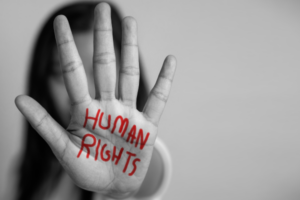Introduction
Criminal law is an essential pillar of any society, ensuring the safety and order of its citizens. Brazil and the United States, both influential nations with rich histories, offer distinct perspectives on criminal justice. This article delves deeper into the nuances and contrasts between their criminal laws.
1. Historical Background and Legal Traditions:
- Brazil: Brazil’s legal tapestry is woven from Roman-Germanic threads, heavily influenced by Portuguese colonization. Over time, Brazil has amalgamated various legal principles, adapting them to its unique socio-cultural landscape. The codification of laws ensures clarity and organization.
- USA: Rooted in the Anglo-Saxon or common law tradition, the U.S. legal system emphasizes judicial decisions and precedents. This dynamic system has evolved, incorporating elements from other traditions while preserving its core principles.
2. Sources of Criminal Law:
- Brazil: Beyond the Penal Code, Brazil has specialized statutes like the Drug Law, Heinous Crimes Law, and the Disarmament Law. These laws are continually revised to address societal shifts and new challenges.
- USA: The intricate U.S. legal system comprises both federal and state laws. This dual system can sometimes lead to conflicts, but it also allows for adaptability to local needs and challenges.
3. Classification of Crimes:
- Brazil: The mental state behind a crime is pivotal in Brazil. The distinction between “doloso” and “culposo” crimes can significantly impact sentencing, with intentional crimes often leading to stricter penalties.
- USA: The U.S. system categorizes offenses based on severity, from misdemeanors to felonies. Each category can have varying degrees, further refining the classification.
4. Rights of the Accused:
- Brazil: Brazil’s legal framework emphasizes the humane treatment of the accused. Landmark cases and constitutional provisions ensure that rights like protection against torture and access to legal counsel are upheld.
- USA: The U.S. Bill of Rights is a testament to the country’s commitment to the rights of the accused. Over the years, landmark decisions have further strengthened these rights, ensuring fair treatment.
5. Judicial Process:
- Brazil: The judge’s proactive role in Brazil’s inquisitorial system ensures thorough evidence examination. However, this central role also demands impartiality and a strict adherence to facts.
- USA: The U.S. adversarial system is a battleground for the prosecution and defense. The emphasis is on legal strategy, with the jury playing a pivotal role in determining outcomes.
6. Punishments and Penalties:
- Brazil: Brazil’s shift towards rehabilitative measures is evident in its legal reforms. The focus is increasingly on restorative justice, community service, and alternative dispute resolutions.
- USA: The U.S. offers a spectrum of penalties, from fines to capital punishment. The emphasis is on both retribution and rehabilitation, with programs aimed at offender reintegration.
7. Juvenile Justice System:
- Brazil: Brazil’s Statute of the Child and Adolescent focuses on the rights and protection of minors. The emphasis is on rehabilitation and social reintegration, with incarceration as a last resort.
- USA: The U.S. juvenile justice system operates separately from the adult system. While it emphasizes rehabilitation, there are instances where juveniles are tried as adults, especially for severe crimes.
8. Role of Law Enforcement:
- Brazil: Brazil’s law enforcement landscape comprises various agencies, each with specific jurisdictions. Their roles often intersect, necessitating coordination and cooperation.
- USA: The U.S. has a myriad of law enforcement agencies, from local police departments to federal agencies like the FBI. Each has distinct roles, but they often collaborate on larger issues.
Conclusion:
The criminal laws of Brazil and the USA, while aiming for justice, are products of their unique histories, values, and challenges. As our world becomes increasingly interconnected, understanding these differences is crucial for international legal collaborations and fostering mutual respect.



